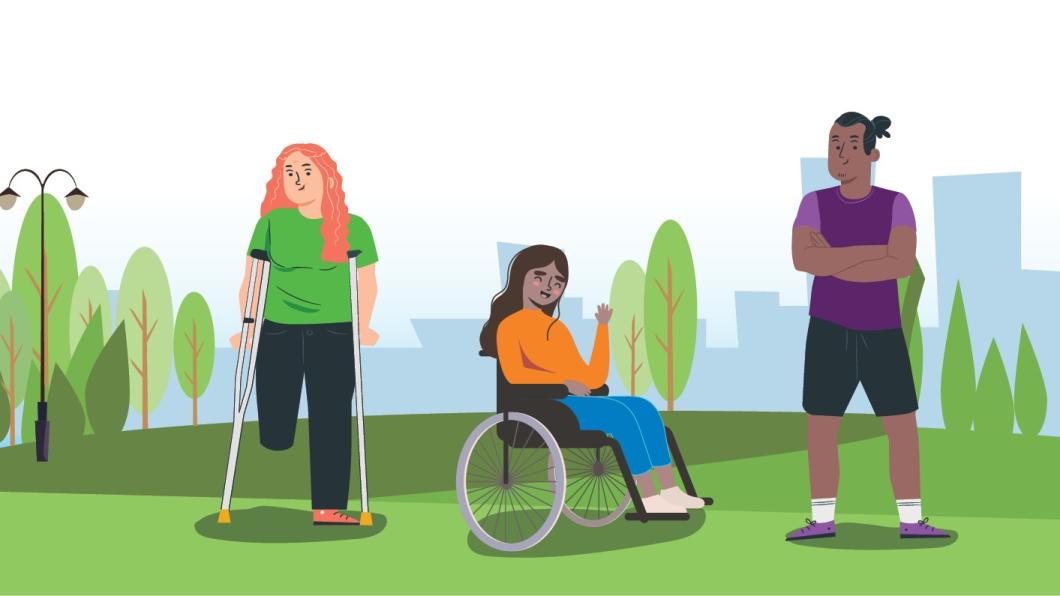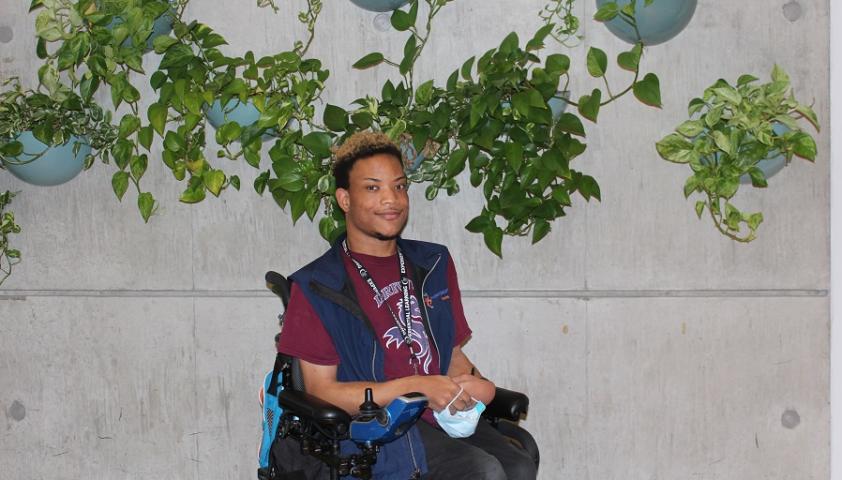
Guide gives service providers the tools to create programs that can empower youth to have a healthy and productive life as an adult
Young people living with disabilities often lack opportunities to develop life skills and peer relationships as they mature. For the past four decades, Holland Bloorview has been working to change this. As part of a wider suite of offerings, the hospital offers a summer independence program that provides meaningful opportunities for personal growth for these youth as they transition to adulthood.
Now, Holland Bloorview researchers have teamed up with healthcare and service organizations in Ontario who provide similar programs to help others deliver away-from-home life skills programs through the launch of a new comprehensive Life Skills Program Guide.
The Life Skills Program Guide offers information and tools to help service providers who design and deliver transition-oriented life skills programs for youth with disabilities. Occupational therapists, life skills coaches, therapeutic recreation specialists, social workers and others can use the guide to support and empower youth to have healthy and productive lives as they transition to adulthood.
The new guide is grounded in more than a decade of research by the Ontario Independence Program Research (OIPR) team. This group brought together researchers and expert clinicians at Holland Bloorview’s Bloorview Research Institute (BRI), McMaster University, McMaster Children’s Hospital (part of Hamilton Health Sciences), and ErinoakKids Centre for Treatment and Development. The team studied the key components that make residential immersive life skills programs effective and successful for youth with different abilities.
“Thanks to our research team and expert reviewers, we hope this guide will give service providers the key ingredients to create programs that give youth a variety of immersive opportunities and experiences,” says OIPR team lead Gillian King, one of the co-authors of the guide and a Distinguished Senior Scientist and Canada Research Chair (Tier 1) in Optimal Care for Children with Disabilities at the BRI. “Developing new mindsets and skills mean youth will be better equipped to make informed choices, build healthy relationships, solve problems, and manage their lives in adulthood.”
The 22-page guide takes users through the structure and purpose of immersive, away-from-home life skills programs, and summarizes research on essential components and effective approaches. The guide also showcases reflections from youth, parents and staff who have experienced these programs.
It outlines four key ingredients for a successful life skills program: creating a supportive program culture, teaching a variety of program topics (e.g.: navigating transit, doing laundry, meal planning), offering different learning contexts and using a variety of teaching and learning strategies.
Learning life skills at Holland Bloorview: a tailored approach
Holland Bloorview’s own away-from-home life skills program, The Independence Program or TIP, has been running for more than 40 years with more than 300 students graduating from the three-week immersive course.
Funded entirely by donors, the summer program helps some 14 to 16 youth living with disabilities each year, either from the hospital or from the community. Youth strengthen their autonomy and their independence based on their individual goals, and have opportunities to develop social relationships and self-awareness. This summer, TIP will be offered in-person with a smaller group after pivoting to a hybrid format due to COVID19 pandemic public health restrictions over the past two years.
“We take a tailored approach and aim to meet each participant’s own goals that they want to achieve,” says Heather Keating, Team Leader, Transitions, Recreation and Life Skills.
During the three-week program, the TIP team creates an environment where participants explore their interests and learn how to do many things on their own. Classroom workshops introduce practical skills, and youth apply them to real-life situations like planning and shopping for a group dinner, or navigating the city and taking public transit. After program hours, they experience social connections with their peers in the dormitory, which can foster a sense of belonging and growth in their self-awareness.

One of TIP’s former students is Grade 12 student Keon Luc. In the summer of 2018 when the student was in Grade 11, Keon stayed at Seneca College’s Newnham residence, where he shared a two-bedroom suite with a roommate and learned many practical skills such as doing his laundry, creating a budget, paying bills, and learning how to prepare meals. He also forged a strong friendship with his roommate by exchanging ideas around living more independently as well as more practical tasks such as setting up chore calendars.
“I remember how I was excited to learn how to do things without anyone helping me,” recalls Keon. “I wanted to learn about all the different life skills I needed in order to go to college.”
For families of youth who attended Holland Bloorview’s TIP program, it makes them realize what their children are capable of doing, says Keating.
“We hear stories where they [the youth] come home and they take over doing their own laundry or cooking a meal. It opens up that mindset of what is possible. We hope that service providers will see the impact TIP has had on our clients and can use this guide to create similar programs to support youth realize their full potential.”
The OIPR team includes researchers and clinicians from three collaborating children’s treatment centres in Ontario: Holland Bloorview Kids Rehabilitation Hospital, ErinoakKids Centre for Treatment and Development, and McMaster Children’s Hospital.
Funding for the OIPR team was provided by a Social Sciences and Humanities Research Council of Canada Insight Grant, with additional support from Holland Bloorview’s Centre for Leadership in Participation and Inclusion and the Holland Bloorview Kids Rehabilitation Hospital Foundation. The development team would also like to recognize the work of Holland Bloorview’s Evidence to Care team and the Bloorview Research Institute for their continued support of this work.